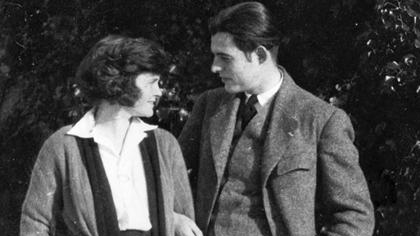Whilst babysitting my friend’s son last night, and tired of Netflix and Brexit news, I stumbled upon a copy of Paula McLain’s “The Paris Wife” on her shelf. Intrigued by the title, I picked it up and, within a couple of pages, was hooked. As a fictionalised account of the marriage of Hadley Richardson and Ernest Hemmingway, it’s a lot of fun; as a woman-behind-the-legendary-man drama, it’s certainly food for thought.
“The Paris Wife” tells the story of a young woman in St. Louis who meets a brash young boy in Chicago and, perhaps against her better judgement, decides to marry him. Both are, without even realising it, ‘damaged goods’ - Richardson’s father had shot himself in the family study when she was 13; a few years later, her sister burned to death in an accidental fire. Hemmingway, for his part, had been seriously injured in Italy, in the First World War, and consequently suffered from shell shock (what we now know to be PTSD). But young love knows no impediment and shortly after tying the knot they set sail for Paris, where Hemmingway dreams of becoming a literary sensation.
Photo courtesy of the JFK Presidential Library
Arriving during the glittering Jazz Age (think flappers, Chanel couture, absinthe and many a coffee drunk at Les Deux Maggots) the couple are soon part of a dazzling literary circle, amongst whom are included Gertrude Stein and Alice B. Toklas, Ezra and Dorothy Pound and Zelda and Scott Fitzgerald.
The novel conjures up a real sense of what Paris was like one hundred years ago…decadence, debauchery, glamour and a determination to live for the moment, after the horrors of the Great War.
Photo courtesy of the JFK Presidential Library
And for some time, at least, all is well. The two pass their days in a rather ’contented’ state - he rents a garret where he can write furiously, she cooks and plays the piano and (Hadley informs the reader) they make love passionately and frequently…
But the cracks, inevitably, set in…Hemmingway is thoughtless, inconsiderate and has a wandering eye. Richardson is often lonely and the fact that they are surrounded by Trustafarians, whilst struggling themselves, hardly helps. And then - the beginning of the end - disaster strikes when Richardson, on her way to meet her husband in Switzerland - mislays her valise with all of his manuscripts inside. Shocked, devastated, angry and a few other emotions besides, he tries to forgive her but, let’s face it, this is a pretty unforgivable crime, by any writer’s standards.
The Paris Wife is, for me. both an ‘easy read’ (i.e. a novel you can throw yourself into, with little trouble) yet a book that deals with some very complicated issues - particularly why a woman gives up everything for a man. There is no doubt that Freeman sacrifices a great deal in order to support her husband’s career - she lives in relative poverty for years, finds herself bereft of close friends and ends up turning to a blind eye to his alcoholism and womanising. Not surprisingly, it all ends in tears when Hemmingway leaves her, after a blatant, out-in-the-open affair with the chic Pauline Pfeiffer.
McLain’s novel didn’t climb to the top of the New York Time's’ bestseller list for no reason - it might be fiction but she has been diligent in her historical resource and the book feels very true to life. One can’t help but feel compassion for Richardson - she loved Hemmingway deeply and that love cost her dearly. She might have been a little naive at the beginning of the novel but, by it’s end…well, she’s certainly no ingenue.


